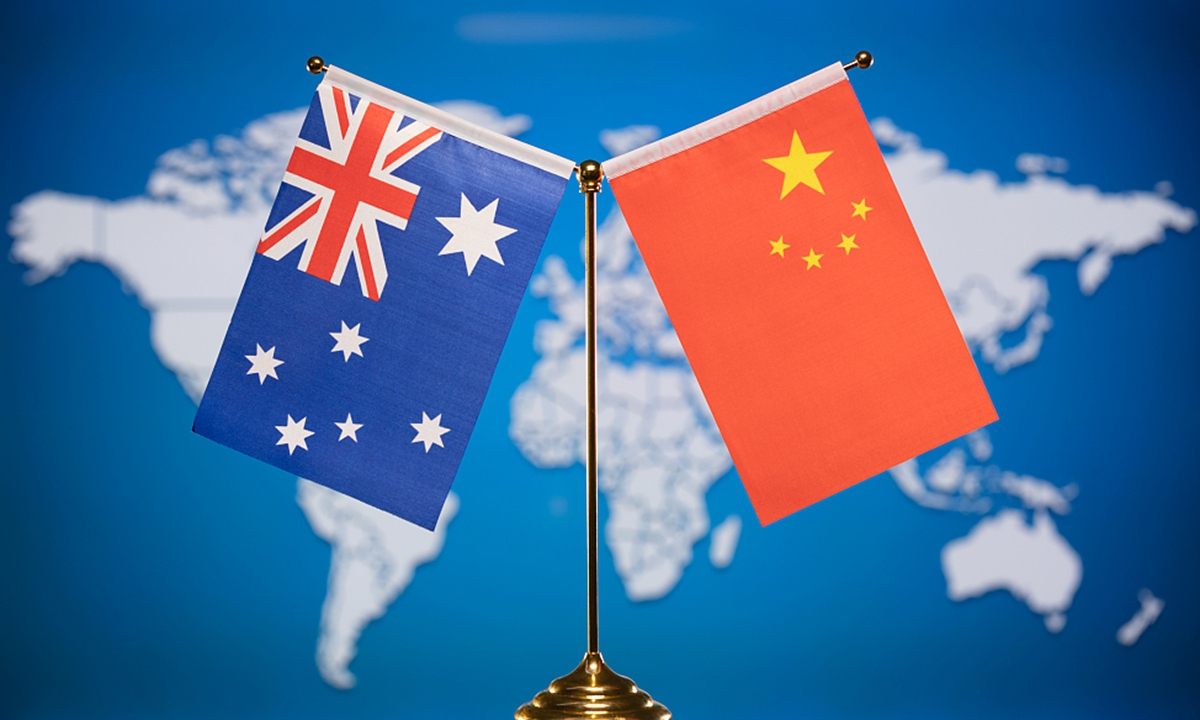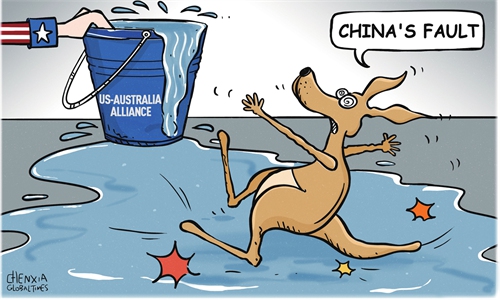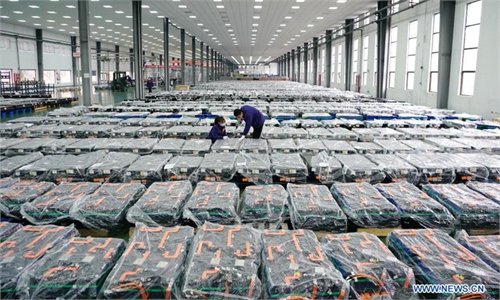
China Australia Photo: VCG
The overall trade of goods between China and Australia reached $19.20 billion in June, up 2.34 percent month-on-month, but down 4.69 percent year-on-year, according to data released on Wednesday by China's General Administration of Customs. In the first half of 2022, bilateral trade shrank 3.1 percent year-on-year.Compared with the overall 10.3 percent growth rate of China's foreign trade in the first half of this year, the underperformance of bilateral trade certainly adds to the frustration among both the Chinese and Australian business communities, but may also fuel their expectation for easing trade tensions between China and Australia, especially at a time when China-Australia relations showed certain positive signs of thawing recently.
On Friday, Chinese State Councilor and Foreign Minister Wang Yi met with Australian Foreign Minister Penny Wong during the G20 Foreign Ministers' Meeting, which was the first meeting between Chinese and Australian foreign ministers in three years.
Yet, Australian Prime Minister Anthony Albanese's response after the meeting indicated that Australia's internal voice toward China remain complicated. And the complexity will only make it harder to resolve trade issues between the two countries.
The crux of the difficulties surrounding bilateral trade is Australia's political interference based on ideological values. It is not surprising that the two sides have different views on some issues, but Australia must be pragmatic on economic and trade issues. The so-called human rights, democracy and security issues cannot be used to disrupt normal economic and trade.
Since Albanese was sworn into office, Australian officials have appeared increasingly keen to restore trade relations to where they were before, which may be because of the economic pressure faced by the Albanese government.
China, too, has shown a willingness to improve trade relations with Australia, as evidenced by the recent foreign ministers' meeting.
Indeed, there are increasing positive signals foreboding the possibility of easing trade tensions between the two countries. But the question is: to what extent can the positive signals be translated into actual improvement in bilateral trade relations? If Australia is really sincere about resolving some trade issues, it cannot just talk about its concerns and ignore China's.
For instance, Australia is the first country in the world to ban Huawei and other Chinese suppliers from providing 5G equipment, which is the starting point of this round of trade frictions between China and Australia. It is necessary for Australia to discuss about the lifting of the ban on Huawei and other suppliers.
Likewise, talks on lifting the ban on products from Xinjiang is also essential for bilateral trade. It is completely groundless for Australia to attack China over the Xinjiang issue.
Moreover, it is also necessary for the two countries to discuss the tariffs under the China-Australia free trade agreement. About 95 percent of imported goods from Australia enjoy zero tariffs based on the free trade agreement, the Chinese embassy in Australia said in December, 2020. By comparison, the Australian government launched 25 anti-dumping and anti-subsidy investigations against Chinese products during the period from 2016 to 2020, according to media reports.
It should be noted that Australia's trade and investment relationship with China has long been in the shadow of the US, which apparently doesn't want to see positive signals in China-Australia trade relations. The US and Australia just announced a "net zero technology acceleration partnership," which was aimed at reducing dependence on China for a clean energy and critical mineral supply chain, The Guardian reported on Tuesday. While reducing reliance on China may seem like a selling point to cater to the hostile atmosphere within Australia toward China, the US itself is facing problems in its own clean energy supply chains. It is questionable how much it can really help.
Australia needs to learn from the past lessons of asking Americans for help in solving economic problems. Let the China-Australia trade pie stay away from the US finger.



